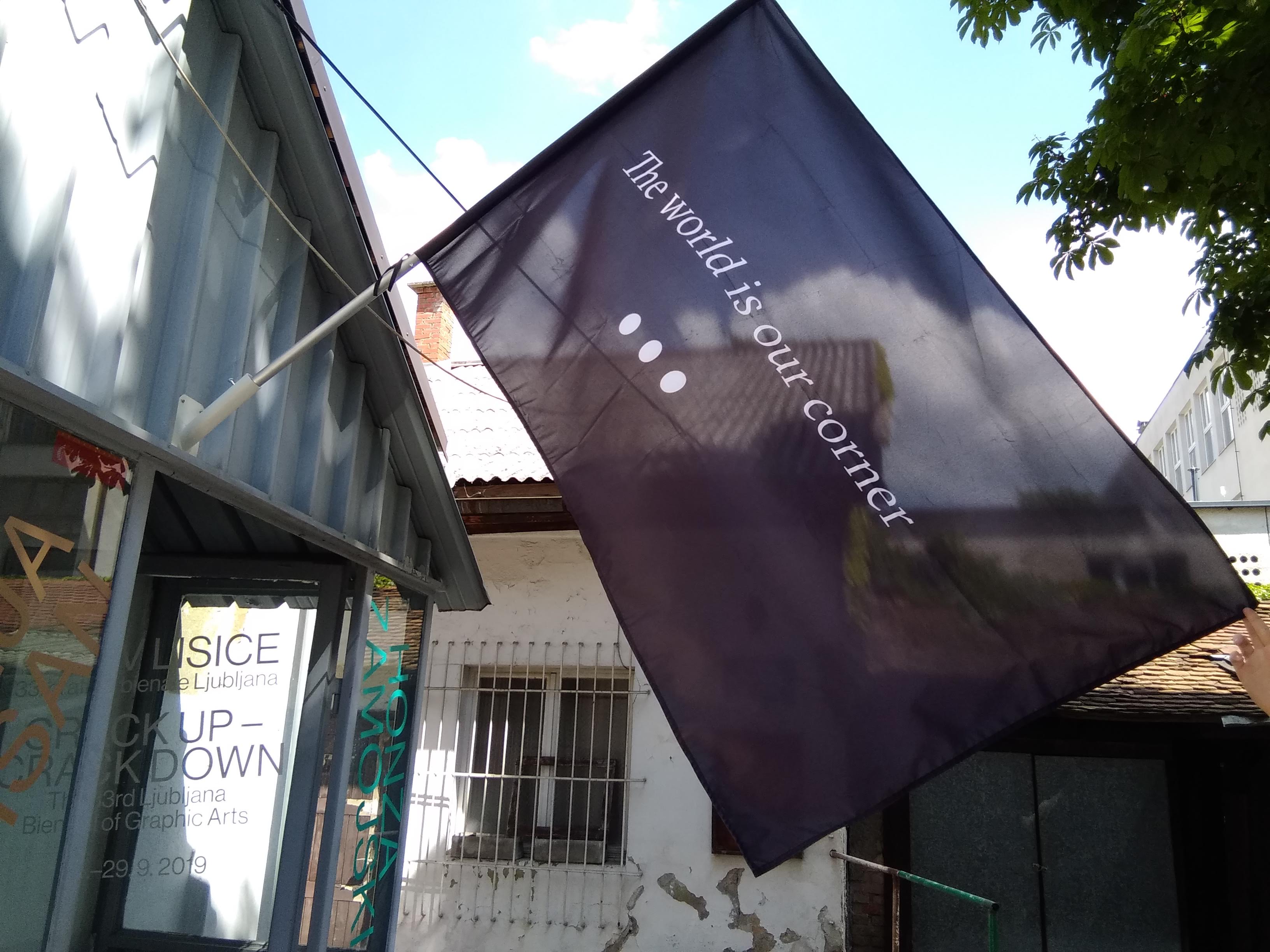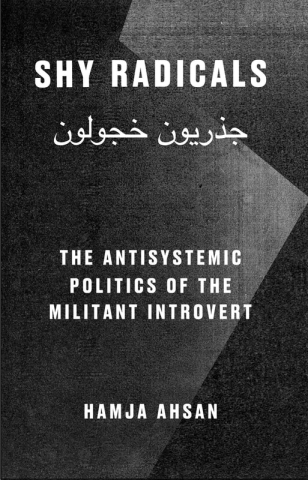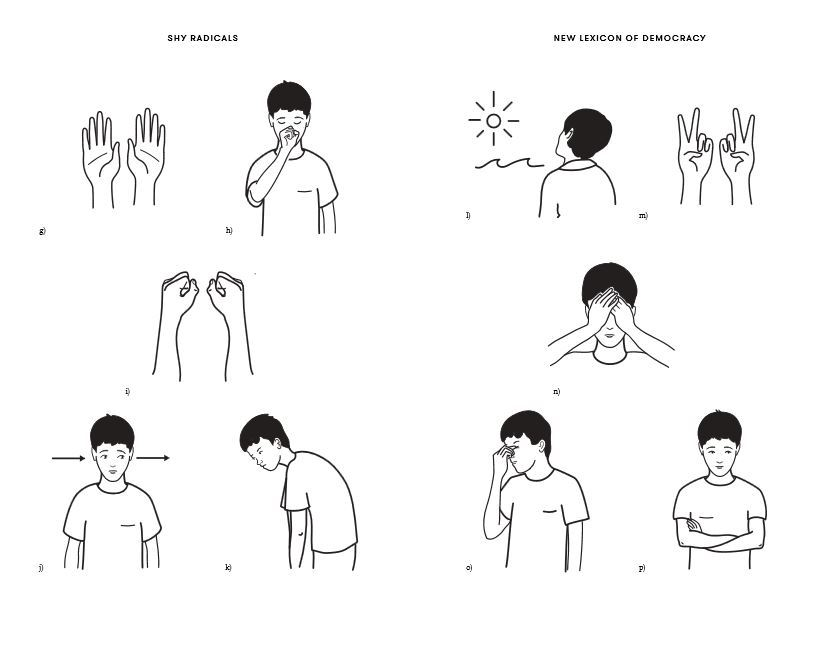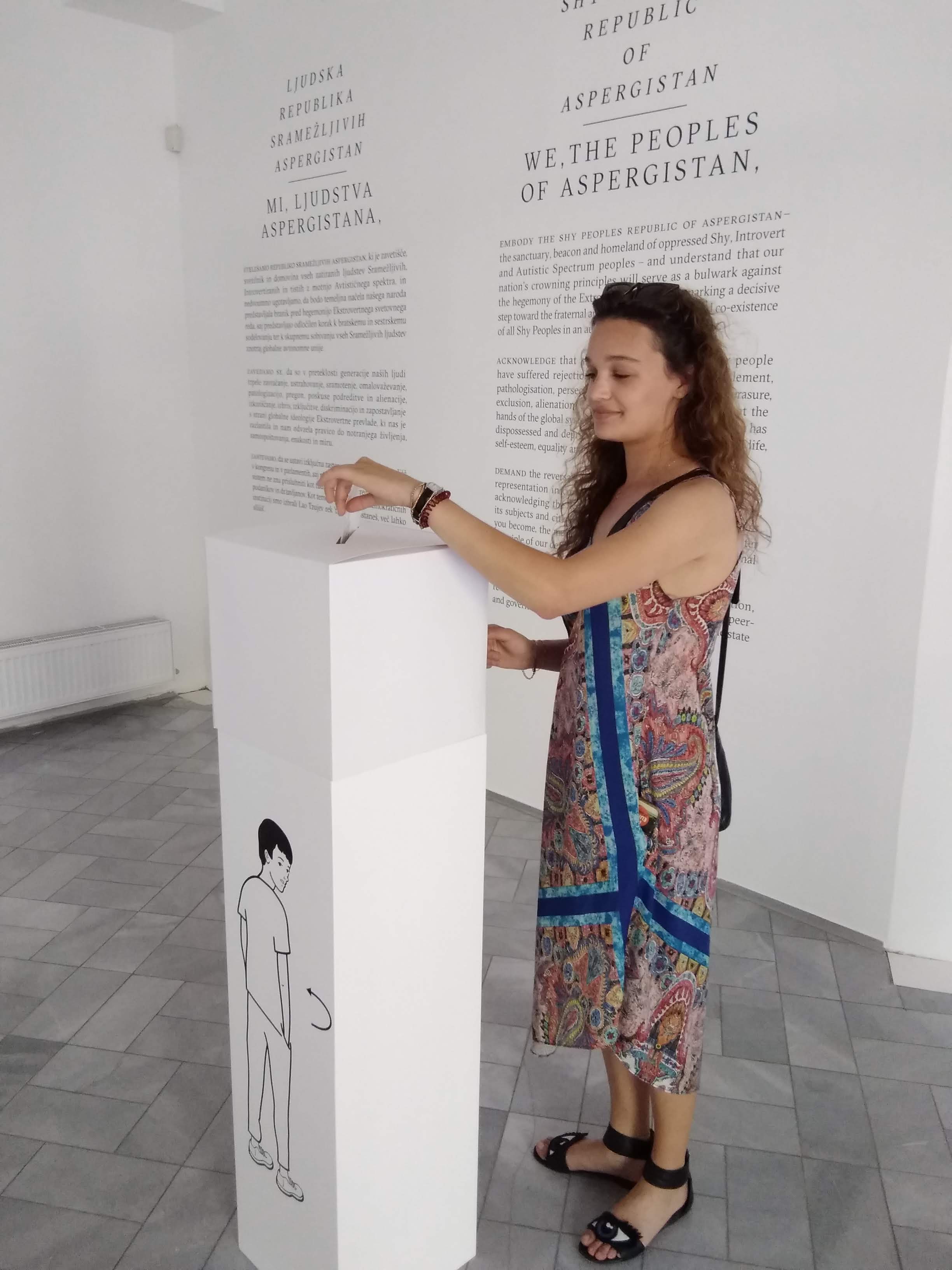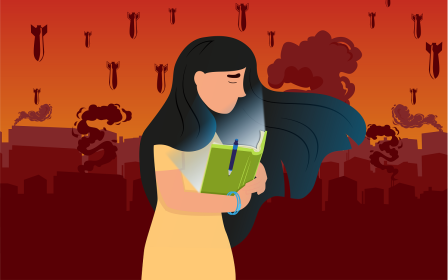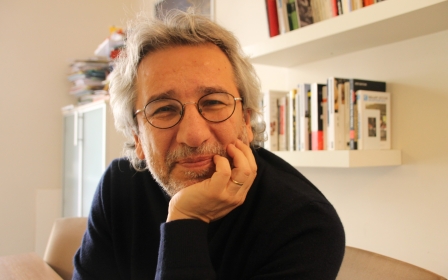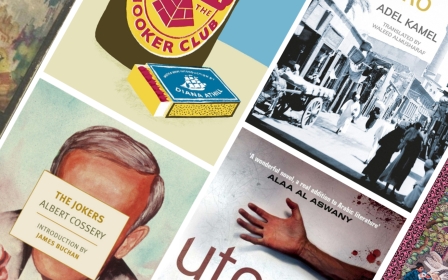'Shy Radicals': The book that demands an inclusive world for introverts
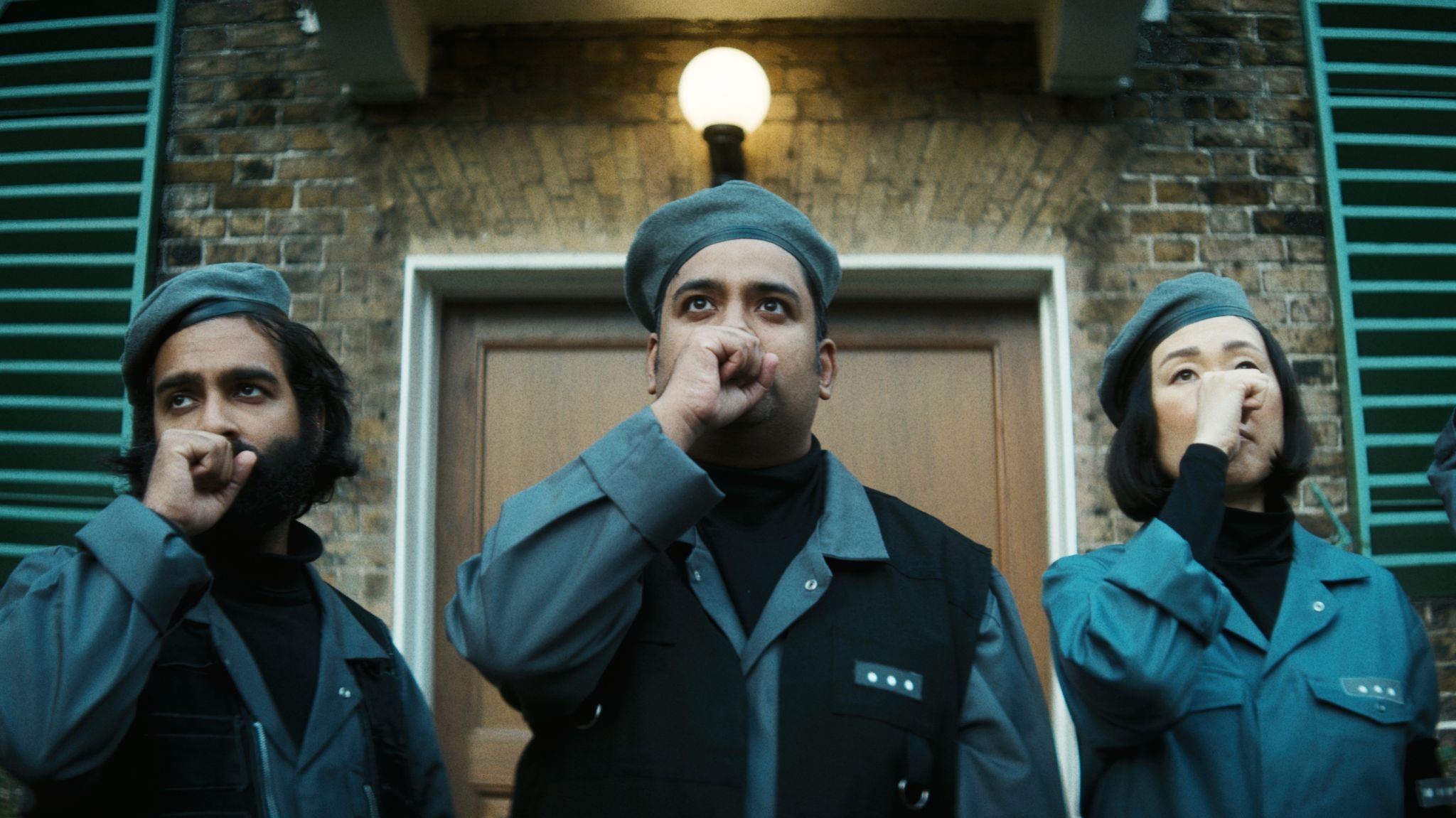
In a quiet, undisclosed corner of the world, a group of like-minded people can be found in peaceful reflection, free from “enforced jollity or coerced happiness”, as well as the more threatening “bullying, peer pressure and introvert hate crime”.
Welcome to The Shy People’s Republic of Aspergistan.
In a book that blends fact with fiction, first-person accounts with political manifesto, Hamja Ahsan, artist and author of Shy Radicals, The Antisystemic Politics of the Militant Introvert, creates a world that obscures the distinction between satire and heartfelt truth.
Based on personal experiences of his life as a chronic introvert, the book is a call for action borne out of a cry for help.
New MEE newsletter: Jerusalem Dispatch
Sign up to get the latest insights and analysis on Israel-Palestine, alongside Turkey Unpacked and other MEE newsletters
“When I was growing up, there was no group that represented me, that represented introverts. You have feminists, you have trade unionists, you have LGBTQ campaigns, but there was no ‘ism’ or a movement to represent me,” Ahsan says.
Years of suffering in silence ended when the 39-year-old Londoner began to pen Shy Radicals in a silent corner of a south London coffee shop. Starting in 2013, armed with an Arts Council grant, over the next three years he would conjure up a mock revolutionary political party, like the Black Panthers - a civil rights group founded by African Americans - but for shy people, proclaiming himself global commander in chief of the international movement.
Standing up to the “hegemony of the Extrovert World Order”, the people of Aspergistan aspire to rid themselves of the shackles of “Extrovert Supremacism”, he writes. They seek “the richness of inner life”, found through such marginalised activities as “silence, contemplation, intimate company”.
Since the book was published in 2017, it has grown a steady following from around the world. It also managed to catch more than the eye of the reclusive reader.
Seeing potential in spreading these ideas to the general public, the British Film Institute’s Documentary Society picked up the film rights to the book, with a documentary adaptation - entitled Shy Radicals - due for release later this year.
The documentary follows Ahsan as he travels the world "inspiring and educating others through creativity and activism", all the while dealing with the trauma and despair of his brother’s extradition case on terrorism-related charges.
In October, 2012, Ahsan’s older brother, Talha, a poet, translator and human rights campaigner, was extradited to the US after spending six years in detention in the UK, on suspicion of terrorism. Ahsan led the campaign to successfully release his brother from solitary confinement, and he returned to the UK in 2014 after entering a plea-bargain.
During Talha’s detention - one of the longest without trial or charge in the UK's legal history - he was diagnosed with Asperger’s syndrome. It was these experiences that inspired Ahsan’s state of Aspergistan, and then the book.
According to production company Black Dog Films, Ahsan "has not simply created an artwork, he has created a world that blurs the boundaries between creator and creation, between real life and the life of the imagination, between reality and an imagined fiction in which he is a leading character”.
A movement for the shy
So where will this utopia for the silent exist? According to Ahsan, somewhere between the highlands of Pakistan’s North-West Frontier Province, across the caves and mountainous regions of Afghanistan, spilling over into the foothills of Iran's Zagros mountains, with Qom as its unofficial spiritual capital.
“I was creating new divisions between the introvert and the extrovert, instead of crossing religious, ethnic and political lines,” Ahsan says. “It was a playful nod to the legacy of partition in this part of the world.”
While at school, Ahsan says his quietness triggered brutal bullying... Verbal abuse - from saying he had “special needs” to far more profane insults - often led to physical abuse
The book opens with the “draft constitution” of the Shy People’s Republic of Aspergistan, listing the various articles which determine the way the state is to function.
From the structure of the state (“All central and local power belongs to the Shy Peoples”) and the fundamental rights and duties of the citizens (“introversion is inviolable”), to the national flag and anthem, it drills down to the smallest details.
Though Shy Radicals may be satirical on the surface, at its heart are very serious concerns.
While at school, Ahsan says his quietness triggered brutal bullying. He felt unworthy of friendship, always last to be picked for sports teams, but first to be picked on. He always believed his silence was the reason, and that he was not allowed to simply exist. Verbal abuse - from saying he had “special needs” to far more profane insults - often led to physical abuse.
Ahsan found refuge at the school library, and made that his safe space. His silence and passivity led to a period of depression, which reached its nadir when he tried to commit suicide at the age of 17.
"You're told to succeed in life you have to be outgoing, you have to sell yourself, be charismatic to get that place at university, to get that job - but what if you’re not, if you shy away from the limelight, and the thought of someone starting a conversation with you makes you want to calmly walk away to the hills. Where do you go, how do you thrive?" he says.
After school, and his battle with depression, he eventually went on to get a First Class degree in fine arts at the world-renowned Central Saint Martins college in London when he was 27 years old, and then the following year a masters in 2009.
#occupybedroom
Ahsan might have escaped the trappings of school and the threatening behaviour of his peers, but he also found adult life rife with situations that triggered anxiety. Feeling pursued by life’s pressures to be loud, popular, sociable, Ahsan chose to disengage from life.
But studying art at St Martin’s helped him turn a corner and extract himself from being an “outcast”.
“It was only in my mid-thirties that I had some sort of acceptance of who I am… The acceptance that I don’t like clubbing and partying and it’s fine.” Largely through social media, he was able to find another landscape of identity in cyberspace where he could see other people who were also bullied.
This, and the experiences of his brother, is why Ahsan wants the shy, the introvert and those on the autism spectrum (who often struggle to live in a world led by the so-called extrovert supremacists) to know that it’s okay to want to spend your weekends at the Poetry Library as he does, or not be forced to go out on a national holiday, or feel pressured to be part of"Trendy Club" culture.
Throughout the book, he references existing global movements where the right to be shy or introverted is honoured.
For example, in his chapter titled #occupybedroom, which lists a number of other shy revolutionary hashtags like #silentstrike, #introintervention and #shyspring, he includes a satirical letter from Japan’s hikokomori delegation, defending their choice to “stay at home”.
More than half a million of these solitary-loving people in Japan have chosen to shun society completely and instead rely on their parents for support, often locking themselves up in their bedrooms.
The rest of the book is split into short chapters, including a fictional interview with a member of the Introfada - the name given to the Shy Radicals underground movement demanding an independent state.
Amy Littlewood is posited as an Australian national who insists on being recognised as a member of the “Aspergistan homeland state”. The fictional character is a political prisoner being held for 13 years in “company confinement” on several charges, including instigating a boycott of the International Introvert Festival of Celebrating Neurodiversity.
“The authorities attempted to divide us into various pathologies,” Littlewood is quoted as saying. “Asperger’s syndrome, social anxiety disorder, depression. But we are all one. We struggle as one. We fight as one.”
‘Terrorism is noisy’
A multidisciplinary artist, Ahsan includes a section on the “new lexicon of democracy”, with a set of drawings depicting 26 signals using body language to negotiate all democratic signals and motions. The gestures are based on those created by previous social movements, like the “wiggly hands” or “up twinkles” used by the Occupy protest movement to indicate agreement.
He also includes examples of films that would be programmed in a fictional Shy Radicals film season, in partnership with the British arts organisation, the BFI Southbank. His programme suggests titles from around the world highlighting the power of silence, and other separatist struggles.
The 1988 classic American college film Heathers (starring Winona Ryder, Christian Slater and Shannen Doherty) is offered as an example of a training film that would be screened to all new Shy Radical members.
In the film, Veronica (Winona Ryder) manages to escape the clique of popular girls and partners up with a trenchcoat-wearing enigmatic new student JD (Christian Slater) to carry out a series of assassinations of her former clique and the college jocks, before she eventually distances herself from her boyfriend who she feels has become too “extremist”.
Political extremism is a question that pops up frequently throughout this small but punchy book. Even the book cover was designed to stir. It features the title in both English and Arabic, a language he deliberately chose based on his recollections of art school peers assuming anything using Arabic letters must be political.
Within a section labelled as the Shy Radical movement’s “public statement”, Ahsan states: “Shy Radicals is not a terrorist organisation… Terrorism is always loud,” calling himself instead, a “campaigner for civil liberties, against the war on terror”.
He goes on to explain that terrorists are the antithesis of introverts, and despite the UK's Prevent programme issuing a “warning signs pamphlet” for the public to be able to identify radicalised youth as being shy or withdrawn, Ahsan is keen to point out that the qualities of an introvert should not make them a prime suspect.
His book tells us: “Terrorism is noisy, with explosions and destruction, it exists on the same plane as extrovert supremacy. Terrorism aspires to be the centre of attention, terrorism loves the camera.”
A global movement for the shy
The book has garnered support from all over the world, and Ahsan is keen to stress it isn’t written for a particular geopolitical region: “I now have fans around the world, in Lebanon, Korea, Mexico City - and we are all united. The ideas raised by my book transcend borders, they cross gender, culture and religion and unify people.”
The book, now in its third edition, has also been translated into Italian. And it has taken off as an art form, like with the mock referendum Ahsan held at the Ljubljana Biennial of Graphic Arts last year.
As part of the summer festival, he showcased an award-winning installation that included a visual display of illustrations from his book and a polling station, asking exhibition goers whether the Slovenian capital should join the Aspergistan Federation. Out of 575 visitors, 72 percent voted in favour.
“The people spoke, they want independence. It proved that people no longer want to put up with the ideology of extrovert supremacy,” says Ahsan, who is now planning on holding a second referendum in Poland.
With a helpline for introverts already in place and the new documentary in production, Ahsan is now on a “never-ending world tour to overthrow extrovert-supremacy”.
Quietly assertive, Shy Radicals can confidently claim its place among the stacks of activist literature. Because of it, the UK's Autism Arts Festival now has a programme where people can wear different colours to identify how comfortable they are with communicating.
The Student Union at Cambridge University invited Ahsan to brief its disability campaigns adviser about creating spaces for different personality traits, and he’s also campaigning for 2 January, World Introvert Day, to receive greater recognition.
The book has even become part of several cross-disciplinary curricula and is now being studied at universities across the UK - in it is a chapter on how to build a Shy Radical student movement, insisting on extensive curriculum reform.
Ahsan argues that the way shyness is presented in degree programmes, including psychology, as “a problem to be overcome via assertiveness skills and cognitive retraining”, is troubling. Being quiet, reserved or shy should not be seen as ailments that need cures.
Ahsan says he uses his artistic intervention to make “tangible differences”. Although the Introfada movement doesn’t actually exist, the ideology behind it does.
“My belief in social change was shattered following the recent elections in the UK, I am still recovering,” Ahsan says, referencing the UK December 2019 polls in which the ruling Conservative Party won a landslide majority. “[And] Trump wasn’t even president when I wrote the book, but he is the embodiment of an extrovert supremacist.”
And in light of new restrictions on movement with the recent rise in the global coronavirus epidemic, introverts around the world are perhaps the most immune to the impact of so-called "social distancing".
"I find self-isolation quite peaceful and I am quite happy," Ahsan says. " I see the true selfish side of extroverts and extrovert supremacy...I saw how selfish and self-destructive they were. I believe some people need some form of mandatory introvert training."
By challenging ideas of popularity, and creating new space for those who refuse to fit in, Ahsan continues his plight for the quiet: “I’m always trying to find ways to make transformative change. I’m trying to find ways to make it legislative to protect spaces. Libraries are shutting down, as are our quiet gardens, something needs to be done. Our rights need to be recognised and respected.”
Shy Radicals: The Antisystemic Politics of the Militant Introvert is published by Bookworks. Ahsan's work can be found on Instagram and Twitter
This article is available in French on Middle East Eye French edition.
Middle East Eye delivers independent and unrivalled coverage and analysis of the Middle East, North Africa and beyond. To learn more about republishing this content and the associated fees, please fill out this form. More about MEE can be found here.



